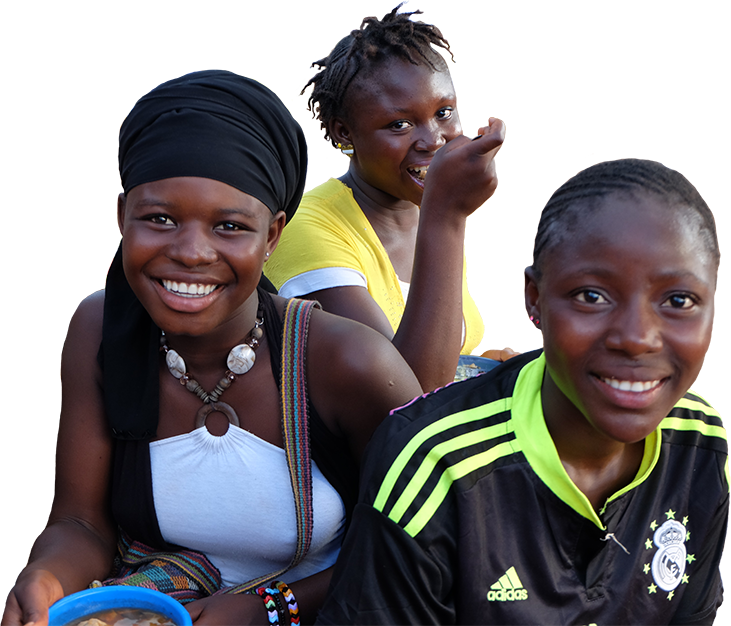Nutrition services typically do not prioritize adolescents and adolescent-friendly health services rarely include nutrition. Nutrition services need to be responsive to adolescents’ unique needs and priorities and address the barriers they face in accessing services. Programs must consider the diversity of adolescents’ situations and experiences, as well as the varied social norms and expectations of adolescents in the family and community. The Adolescent Nutrition Resource Bank includes guidelines and tools used in nutrition services for adolescents.If you have relevant service delivery documents or tools, please send them to info@advancingnutrition.org.
We found 136 resource(s)
Formative Research to Inform Adolescent Programming in Guatemala: Engagement for Health, Nutrition, and Sustainable Development
Technical Report published by WFP in
This formative qualitative research study, conducted in Guatemala, focused on the perspectives, experiences, and suggestions of adolescent girls and their communities related to adolescent health and nutrition. The report includes recommendations related to strengthening the visibility of adolescents, influencing adolescent nutrition, engaging…
Formative Research to Inform Adolescent Programming in Uganda: Engagement for Health, Nutrition, and Sustainable Development
Technical Report published by WFP in
This formative qualitative research study, conducted in Uganda, focused on the perspectives, experiences, and suggestions of adolescent girls and their communities related to adolescent health and nutrition. The report includes recommendations related to strengthening the visibility of adolescents, influencing adolescent nutrition, engaging…
Malawi National Multi-Sector Nutrition Policy 2018-2022
Policy published by Department of Nutrition, HIV/AIDS, Government of Malawi in
The Malawi National Multi-Sector Nutrition Policy for 2018–2022 aims to ensure that evidence-based, high-impact nutrition interventions are developed and implemented at scale. The policy addresses such issues as preventing undernutrition and nutrition education, social mobilization, and positive behavior change.
Pakistan Multi-Sectoral Nutrition Strategy 2018-2025
Policy published by Ministry of Planning, Development and Reform, Government of Pakistan in
The Pakistan Multi-Sectoral Nutrition Strategy for 2018-2025 adopts a multi-sectoral planning and analysis framework. The strategy includes provisions for adolescent girls' nutrition, including micronutrient supplementation, regulation of foods marketed to adolescents, addressing gender equality issues, and health and nutrition education.
Suaahara II Annual Survey: Adolescent Panel Year 2
Assessment Tool published by in
This document is the data collection tool used in Year 2 of the Suaahara project, which focused on expanding health and nutrition services for adolescents in Nepal. The tool addresses respondents' health-related background, integrated nutrition exposure, dietary recall, WASH, social participation, freedom of movement, self-efficacy, social…
Adolescent Pregnancy and Its Impact on the Prevalence of Stunting: Programmatic Considerations for Food for Peace Programs that Aim to Reduce Stunting
Brief published by FANTA in
This technical brief examines the fact that adolescent pregnancy increases the risk of childhood stunting. issue of adolescent pregnancy and its implications for the prevalence of stunting. The brief describes promising evidence of what works to address these issues, including changing community attitudes toward early marriage and providing…
Special Issue: Adolescent Women's Nutrition Status
Journal Article published by NYAS in
This is a special issue of Annals of the New York Academy of Sciences on Adolescent Women's Nutritional Status. It contains articles on such issues as dietary and nondietary determinants of nutritional status among adolescent girls and adult women in India, and understanding the determinants of adolescent nutrition in Bangladesh.
Regional Assessment of Gender Responsive Adolescent Health in South Asia
Guideline/Guidance published by UNICEF in
This report shares key findings on Gender Responsive Adolescent Health (GRAH) in South Asia and provides a draft action framework to improve adolescent health in the region. The report includes information on adolescent nutrition programs and program guidance.



